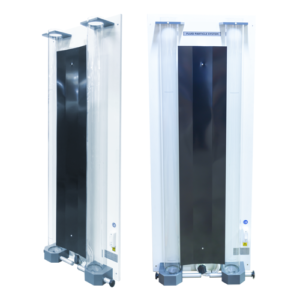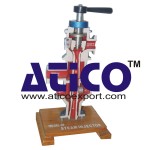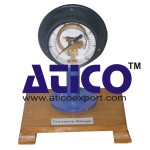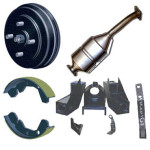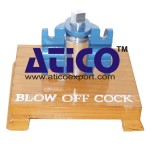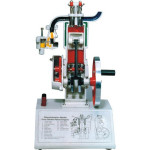Product Code: AE0C034
Description:
The apparatus has been designed to introduce students to the fundamental characteristics of the behaviour of particle/fluid systems, in particular the relationship between the drag coefficients of falling particles and their Reynolds’ number value.
Particles covering a range of sizes and densities are supplied. The experiments are conducted by allowing single particles to fall through a number of different liquids contained in vertical glass tubes. Blockage effects are reduced to a minimum as the largest particle used has a projected area of only 1% of the tube cross-section.
The rate of fall of the particles is determined by timing their passage between two marks on the walls of the glass tubes.
The equipment consists of two precision glass tubes 1.5m long and 93mm inside diameter fixed vertically on a wall-mounted backboard. A guide is provided at the top of each tube to facilitate the introduction of particles with the minimum of disturbance to the liquid. A sliding valve device at the bottom of each tube allows the particles to be removed with minimum loss of liquid.
Experimental Content:
- Measurement of drag coefficients of spheres over several decades of particle Reynolds’ number
- Exploration of dimensional analysis and dynamic similarity
- Introduction to the effects of boundary layer separation on motion of spheres
- Effect of particle shape on rate of fall and on drag coefficient
Technical Specification:
- Tube length: 1500mm
- Outside diameter: 100mm
- Inside diameter: 93mm
- Streamlined shapes: x2
- Supplied spheres:
- Stainless Steel
3.17mm diameter
6.35mm diameter
7.9mm diameter
9.5mm diameter - Ceramic
6.35mm diameter
9.5mm diameter

